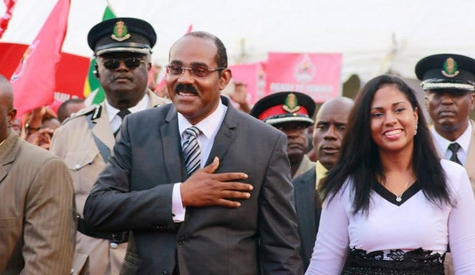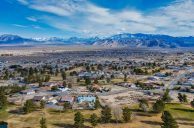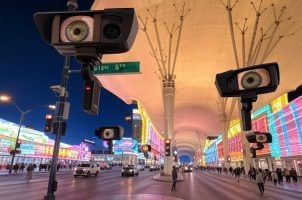Antigua and Barbuda Seeks US Gambling Trade Dispute End
Posted on: October 10, 2014, 05:00h.
Last updated on: October 9, 2014, 07:19h.

Antigua and Barbuda, the tiny twin-island Caribbean nation which has been involved in an online gambling trade dispute with the United States for a decade, is to enter into talks as the two sides seek to move towards a solution. The move follows a meeting between the islands’ Prime Minister Gaston Browne and US Trade Representative Michael Froman.
The David and Goliath battle began when Antigua and Barbuda objected to the block imposed by the US government on its own citizens from using the islands’ online gambling services. In 2003, Antigua and Barbuda complained to the World Trade Organization (WTO) that America’s stance contravened the General Agreement on Trades and Services (GATS), an international treaty, drawn up by the WTO in 1995, which is designed to remove barriers to trade.
The result, which likely embarrassed the US and surprised probably even Antigua and Barbuda, was that the WTO sided with the islands, ruling, in March 2004, and then again in 2007, that by refusing full market access to online gambling operators on the islands, the US, a paid-up member of the WTO, was in breach of its treaty obligations.
$3.4 Billion in Trade Sanctions
Buoyed by its success, Antigua and Barbuda filed a claim for $3.4 billion in trade sanctions against the US, in the form of authorization to ignore US patent and copyright laws, arguing that this was the value of trade lost as a result of the restriction of online gambling services between the two countries. This would potentially have allowed the islands to ignore the intellectual property rights of US firms, such as those in the movie and music industry, in order to resell their assets.
The US, which argued, and continues to do so, that it never intended its commitment to GATS to include online gambling, offered various undisclosed concessions to the islands in place of those demanded, but refused to make the nature of these concessions public, despite calls from Congressmen Barney Frank and Ron Paul to do so.
Today the situation remains unresolved,but still burns brightly in the minds the island’s citizens. Just last month, Browne brought the matter up at the United Nations General Assembly, where he called on the US to settle the matter, a move that prompted the renewed talks. Both parties have now agreed to put together a team to work together on the dispute.
“I am encouraged that my administration has been able to secure a meeting with the US Trade Representative, Ambassador Froman, so early,” said Browne. “Ambassador Froman is a Cabinet-level officer of the US Government and this should facilitate decision-making on policy matters.”
History of Online in Antigua and Barbuda
Antigua and Barbuda was an early adopter of online gambling, creating a framework for regulation as far back as 1994, when the industry was in its infancy. Low taxes and investment in tech infrastructure soon began drawing operators. By the year 2000, the islands had 93 online gambling licensees who were turning in $ 7 billion in revenue between them. This was also around the time that the US started cracking down on online gambling operators and barring banks from processing transactions, and as a result the number of licensees began to plunge, decimating the industry on the islands.
By 2002, the number of operators had dropped to 38 and, by the next year, when Antigua and Barbuda filed its complaint to the WTO, over 80 percent had left the island.
Related News Articles
Bwin.party Confirms GVC Bid
Betsson Affiliate Manager Charged with Embezzling $162,000
Most Popular
Oakland A’s Prez Resigns, Raising Questions About Las Vegas Move
Vegas Casino Resorts Install Detectors to Smoke Out Vapers — Report
Most Commented
-
UPDATE: Whiskey Pete’s Casino Near Las Vegas Closes
— December 20, 2024 — 33 Comments -
Zillow: Town Outside Las Vegas Named the Most Popular Retirement City in 2024
— December 26, 2024 — 32 Comments -
Oakland A’s Prez Resigns, Raising Questions About Las Vegas Move
— December 27, 2024 — 9 Comments -
UPDATE: Former Resorts World & MGM Grand Prez Loses Gaming License
— December 19, 2024 — 8 Comments
















Last Comment ( 1 )
Antigua sued for 3.4 Billion, but was awarded only 21 million, less than 1/2 of 1%. A loss by any measure.